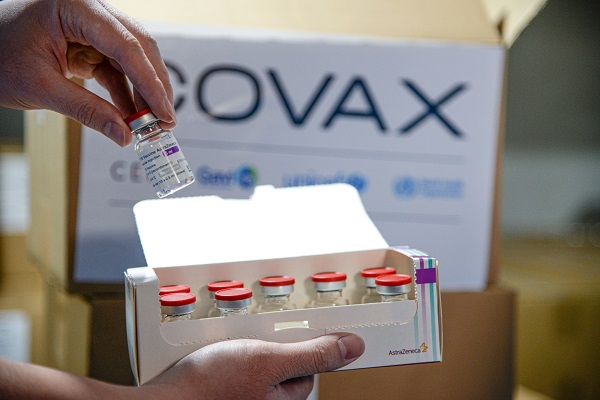
The coordinating Minister of Health and Social Welfare, Prof. Muhammad Pate has highlighted Nigeria’s potential to emerge as a hub for local vaccine manufacturing in Africa.
Pate made these remarks during a ministerial briefing organised by the Federal Ministry of Health and Social Welfare in Abuja, underscoring Nigeria’s substantial population, skilled workforce and established pharmaceutical industry as critical assets that could foster the growth of a robust vaccine manufacturing sector.
Addressing the need for local vaccine production, Pate acknowledged the role of market shaping in Nigeria’s vast market, consisting of over 200 million people. He emphasised the intention to utilise this demand to catalyze local vaccine manufacturing.
However, the COVID-19 pandemic has brought to light the necessity of local vaccine production and self-sufficiency in African countries. Pate acknowledged that achieving self-sufficiency in vaccines might take time, but he emphasised the commitment to the cause.
Pate stressed that a collaborative effort between governments, the private sector, and international partners would be instrumental in supporting the development of local vaccine manufacturing in Nigeria and across Africa.
Regarding demand creation, Pate highlighted Nigeria’s successful strategies, particularly in polio and routine immunisation, which involve traditional rulers, religious leaders and community engagement to promote vaccine acceptance. The ministry plans to expand the Northern Traditional Rulers Committee on Primary Health Care to a national level, involving traditional leaders from across the country to further boost vaccine demand.
Nigeria has a historical background in vaccine production, with the Yaba laboratory actively producing vaccines from 1940 to 1991. The lab supplied vaccines against smallpox, rabies and yellow fever to not only Nigeria but also neighbouring countries. Unfortunately, the Yaba vaccine production laboratory has remained closed since 1991, despite the intent to upgrade it.
In 2017, the Federal Government initiated a partnership agreement with May and Baker Nigeria Plc to establish Biovaccine Limited, aimed at local vaccine production. However, the company has not yet commenced production.
Several African countries, including South Africa, Tunisia, Ethiopia, Madagascar and Senegal have operational vaccine production facilities.
In 2021, the Ministry of Finance allocated N10 billion to support domestic vaccine production. Although the 8th National Assembly delayed the spending of these funds pending clarity on their utilisation, former health minister, Dr. Osagie Ehanire confirmed in 2022 that the money remained intact.
Nigeria spends an estimated N4 billion annually on vaccine importation. Local production could potentially reduce these expenditures and related costs, ultimately strengthening Nigeria’s pharmaceutical sector.
As Nigeria continues to explore opportunities in local vaccine manufacturing, it aims to bolster its healthcare infrastructure and contribute to broader healthcare accessibility across Africa.

